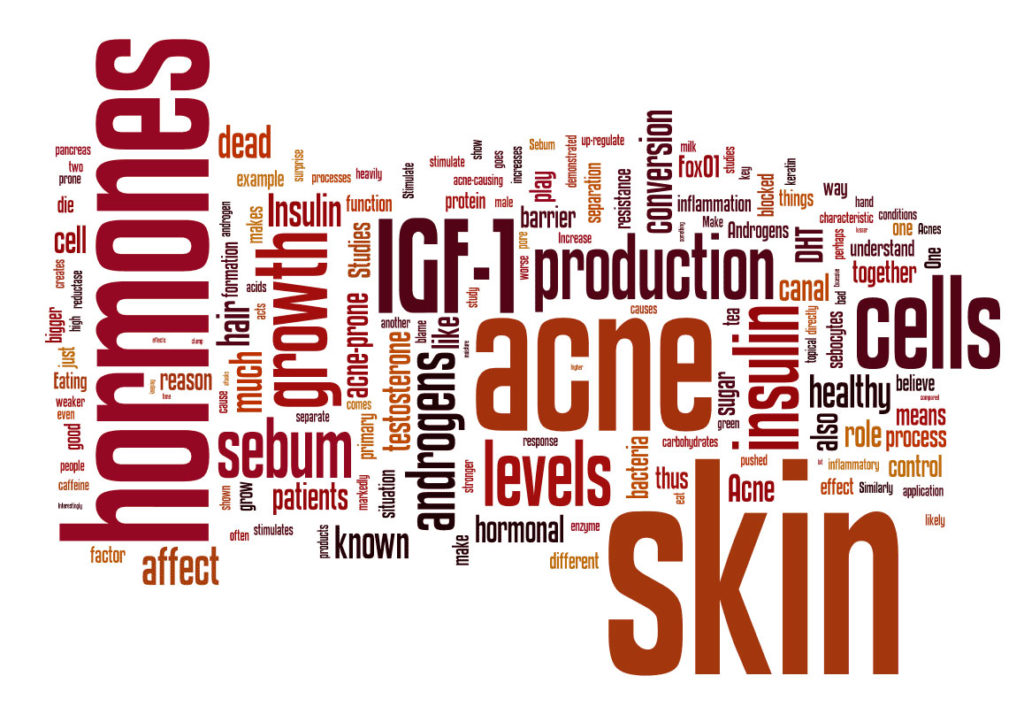Do you or someone you love suffer from brain fog? You know, that feeling when your short-term memory fails, when you can’t recall names, places, or words when you want to retrieve them. You’re not as sharp as you used to be. Or perhaps you suffer from mood concerns, maybe you have tried or are currently on medications for these concerns or therapy to help. Or perhaps you have a loved one that you feel whose cognition is fading away, and they are having trouble recognising you or understanding reality.
Well, this is the brain inflamed. While medications may help, what are some natural ways we can support the brain to be less inflamed and to keep it at its best? That’s what we’re talking about today.
Hellooo everyone. Welcome back to our podcast, Health Geek Gals, talking anything and everything, and I mean really everything, about health and wellness from a holistic perspective.
I am Dr Kathleen, classic health geek, Doctor of functional/naturopathic health and Director of Dr Kathleen & Team Global Consulting. We offer a holistic approach to health care to address biological/mind/body/nutrition/and functional movement naturally, so we share our insights on topics from all these perspectives by virtual consultation and functional pathology testing worldwide.
Do you or someone you know seem to suffer from mental decline?
Well, today we’re going to talk about why addressing your brain health naturally could be a healthy part of your regular regime.
Of course, I’m not suggesting you break up with your medical doctors or mental health specialist as these are vital contacts for your health, and if your symptoms worsen you should always seek medical attention.
But if you want to complement your conventional approaches for brain health, I’ve got some of my best natural medicine hacks to share with you here today for diet, brain inflammation testing and supplementation.
So, let’s Geek it Out People….
Our brain is incredible. The famous inventor Thomas Edison proclaimed that the chief function of the body is to carry the brain around. It really is that important. Without our cognition, what are we, really? Do you want to do everything you can to preserve it for as long as possible?
On a blog for Northwestern University, Neurologist, Dr Kapil Sachdeva from Northwestern University writes that:
· Sixty percent of the human brain is made of fat and these fatty acids are critical for its performance.
· Your brain isn’t fully formed until age 25. Brain development begins from the back of the brain and works its way to the front. Therefore, your frontal lobes, which control planning and reasoning, are the last to strengthen and structure connections.
· Your brain’s storage capacity is considered virtually unlimited. Research suggests the human brain consists of about 86 billion neurons. Each neuron forms connections to other neurons, which could add up to 1 quadrillion (1,000 trillion) connections. Over time, these neurons can combine, increasing storage capacity. However, in Alzheimer’s disease, for example, many neurons can become damaged and stop working, particularly affecting memory.
· Brain information travels up to an impressive 268 miles per hour.
· The human brain weighs about 3 pounds, but size does not equate to intelligence.
· The human brain can generate about 23 watts of power (enough to power a lightbulb).
So how do we ensure that this amazing organ is operating at its best?
We need to consider inflammation. This inflammation may be brought on by several factors, all of which can’t be covered here today, but I will highlight a few areas for us to focus on here.
Much of these insights are drawn from a fantastic practitioner’s lecture by Dr Todd Lapeen, MD in his lecture Neuroinflammation: Taming the Fire in the Brain, but I will attempt to translate this into some easy-to-understand hacks for our listeners to consider adding to their health regime.
So, going back to inflammation. Let’s look at why this is important in terms of brain health, what to investigate from a functional health perspective in terms of testing, and some simple dietary and lifestyle tips to implement in your daily life.
While many of us are familiar with the concept of our brain containing neurons, did you know that most of the brain’s cells are something called Glial cells, Latin for glue, and these cells hold the brain together? They are influential as there is something called Microglia cells that reside in the brain and are immune activated. This immune activation promotes inflammation.
Interestingly, studies have looked at how Lyme’s and Bartonella enact inflammation, and this can be expressed as schizophrenic activity. Other reasons for brain inflammation may be an early onset of depression, with a more than 2-fold increase in dementia risk if it goes untreated. So just using an antidepressant could be potentially risky for the brain not due to the medication but if the underlying factors contributing to the inflammation are not addressed. As we are discovering that depressive concerns are related to inflammation.
But how does this occur? One possible reason is due to the gut microbiome and gut intestinal lining being permeable or leaky. Normally we have these tight junctions in our gut wall that prevent unwanted food particles and toxins from leaking out of our gut, but due to the use of certain medications and dietary factors such as NSAIDS, antibiotics, proton pump inhibitors, gluten, alcohol, processed sugars, these normally tight junctions of enterocyte cells open up into our bloodstream, causing a hyperimmune response which crosses the blood/brain barrier promoting inflammatory signals in the brain.
Also, there is an intimate connection between the gut and brain through the microbiota-gut-vagus nerve-brain axis so it is vital for maintaining a healthy balance in our brain and gut. This may involve investigations into the gut for overgrowths of unfavourable bacteria, parasites, or yeast infections, or the presence of Zonulin marker which increases as the tight junctions open in the leaky gut.
You might be wondering at this point what other areas might need to be investigated to prevent this inflammation in the brain.
Take a look at your oral hygiene, which means regular teeth brushing and flossing. Not only do we need to do this to prevent cavities, but the reasons are far more important for brain health. Interestingly, the periodontal pathogen porphyromonas gingivalis in high concentrations has been found in the brain tissues of people with Alzheimer’s. So, gum health is key, always check in with your dentist for gum health as well as regular teeth cleaning to maintain healthy gums. Further on the topic of Alzheimer’s, this condition is associated with something called beta-amyloid plaques in the brain. These plaques are the brain and immune system’s attempt to control infection. It’s interesting how it’s all linked.
Further to the topic of infection, a recent study was published by Tufts University on August 2 of this year that common viruses may be triggering the onset of Alzheimer’s disease. Shingles infection may activate dormant neurological herpes viruses, causing inflammation and accumulation of Alzheimer-associated proteins in the brain. So, if you have had Shingles, I would suggest you check in with a functional medicine practitioner for some further testing of your gut microbiome and inflammatory biochemistry markers to be proactive about your brain health. While research is still in its early stages, it can’t hurt to look at any underlying ways you can support yourself to keep your inflammatory signalling balanced.
Another factor contributing to brain inflammation is exposure to toxins from mycotoxins from damp buildings with mould exposure, air pollution and heavy metals in foods. We know that mercury and lead are neurotoxins and are not uncommon to be discovered in red blood cell results that we run in functional health practice. It is imperative to discover the sources of chronic exposure if you can and address these toxicities with an informed practitioner to protect your brain.
A good functional medicine test to measure brain inflammation is the OATS, an organic acid test through urine, which has a marker for Quinolinate or Quinolinic acid as this is a marker for neuroinflammation. Another marker for inflammation is kynurenate. The trace mineral Selenium in studies is beneficial for elevated Quinolinate, but it’s important to check levels prior to supplementing.
Finally, if a person experiences any kind of brain injury this will also promote brain inflammation. Sulforaphane, a broccoli sprout enzyme extract, is a great supplement that supports Nrf2 which increases endogenous cytoprotective genes in brain tissue and microvessels and assists with the detoxification of toxic molecules.
In terms of diet, caffeine has been shown to be neuroprotective, particularly in organic coffee (avoid inorganic due to sprays used), and olive oil. Olive oil may help with the clearance of beta-amyloid plaques in the brain that are associated with Alzheimer’s. Particularly the extra virgin cold pressed variety. So, people eating the Mediterranean diet, although they still have amyloid plaques in their brain, in studies don’t appear to express the symptoms of Alzheimer’s. It would also be wise to include a good quality high potency EPA/DHA fish oil, turmeric, and green tea to decrease oxidative stress, inflammation, and plaque load. Limiting gluten, alcohol and processed sugars can help the gut’s integrity to remain healthy too which as you recall helps to prevent leaky brain response. Pre and probiotics can be helpful too to help restore a healthy gut microbiome.
Don’t forget to get a good night’s sleep consistently, as this helps to clear the garbage from our brain through the lymphatic system of the body. It can help to wear good quality blue blocking lenses or computer blue screen settings to ensure you have restorative sleep.
Other supplements to consider are CBD oil, organic cold-pressed full spectrum, PEA which is a naturally occurring signalling molecule which is neuroprotective and cellular mitochondrial nutrients such as coenzyme Q10.
So, there is so much that we can do to act to keep our brains as healthy as possible naturally. If you would like to investigate if you have neuroinflammation or any gut concerns that could be contributing to your brain fog, as mentioned the OATs test, and the Complete Microbiome Mapping/Gi Mapping depending on where you live in the world are comprehensive tests we offer.
Well, when you take these hacks into consideration, ask yourself, what brain are you prepared to carry around on your body day and night? One walking and talking in a fog, or a clear, quick one? Of course, genetics come into play with all of this, but minding the science there are some simple hacks we can use to quell inflammation and aim to enjoy our best lives.
We would love to hear from you as to how you look after your brain health or any stories about a turnaround from stodgy brain cognition and mood issues to clarity.
You can DM Dr Kathleen & Team on Instagram, Facebook or TikTok, or chat with us on our website: www.drkathleen.co.nz. If you would like to book in to see one of our holistic functional practitioners, you can do so using our automated bookings system through our website, and view some of the tests we have on offer. Of course, don’t forget to check in with your primary medical physician for any medical concerns.
Join us next time to continue to geek out with us!

Director of Dr Kathleen & Team
Functional/Naturopathic Practitioner
You can also listen to this podcast on this page: https://thehealthgeekgals.buzzsprout.com/
Yours in health, Dr Kathleen of Dr Kathleen & Team




